Thomas Lux
Refrigerator, 1957
If your home were a museum — and they all are, in a way — what would the contents of your refrigerator say about you and those you live with? In his poem “Refrigerator, 1957,” Thomas Lux opens the door to his childhood appliance and oh, does a three-quarters full jar of maraschino cherries speak volumes.
We’re pleased to offer Thomas Lux’s poem, and invite you to read Pádraig’s weekly Poetry Unbound Substack, read the Poetry Unbound book, or listen back to all our episodes.
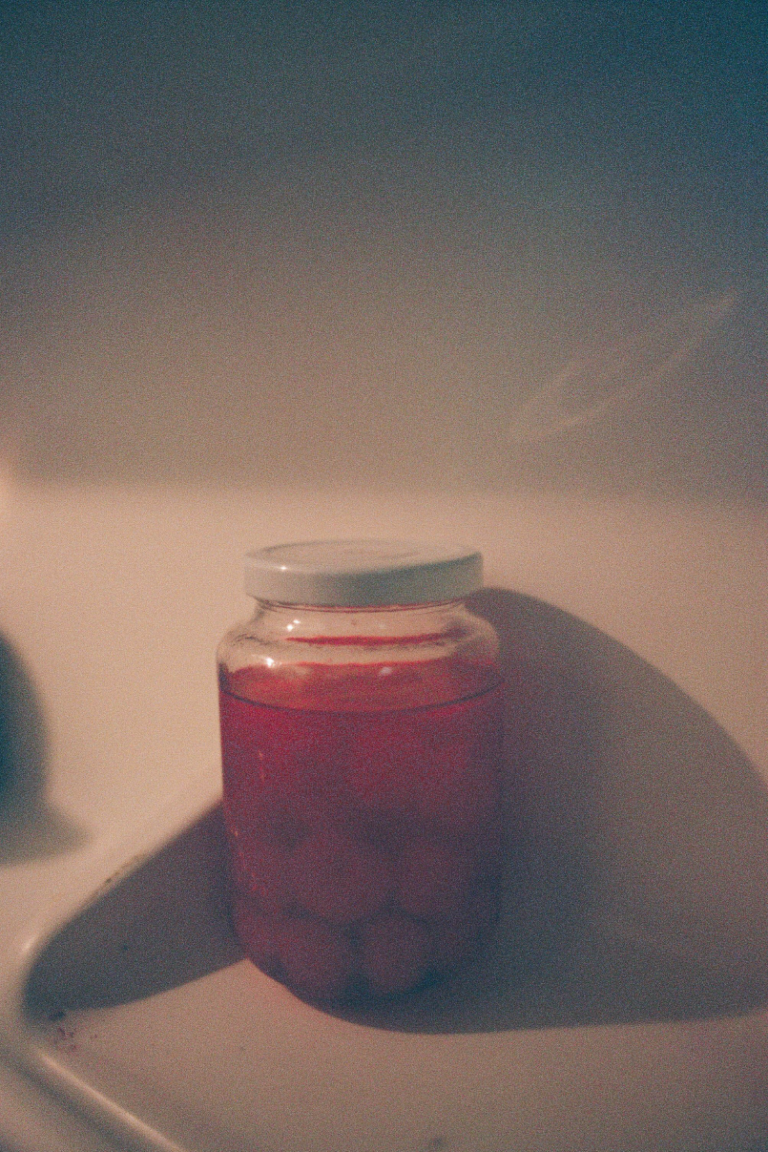
Image by Annisa Hale/ Film processed by Moody's Film Lab, © All Rights Reserved.
Guest

Thomas Lux was an American poet and professor. He was the author of several collections of poetry, including To the Left of Time (Ecco, 2016), Child Made of Sand (Houghton Mifflin, 2012), God Particles (Houghton Mifflin, 2008), and New and Selected Poems of Thomas Lux: 1975-1995 (Ecco Press, 1999). Lux taught for many years at the Georgia Institute of Technology, where he held the Bourne Chair in Poetry and directed the McEver Visiting Writers Program.
Transcript
Transcription by Alletta Cooper
Pádraig Ó Tuama: My name is Pádraig Ó Tuama, and a number of months ago I was staying with a friend, Ellen Bass, the poet. And over a cup of tea, she told me that she and her wife Janet, had been memorizing poems together during Covid. And then they broke into this particular poem. And my memory is being in their kitchen — me with a cup of tea, one of them standing, one of them sitting — and they knew the lines by heart, and when one would stop, the other one would pick up saying the lines together at the same time sometimes. And they were grinning, beaming, glowing with the deliciousness of the words of this beautiful poem. So here it is, “Refrigerator, 1957” by Thomas Lux.
[music: “Praise the Rain” by Gautam Srikishan]
“More like a vault — you pull the handle out
and on the shelves: not a lot,
And what there is (a boiled potato
in a bag, a chicken carcass
under foil) looking dispirited,
drained, mugged. This is not
a place to go in hope or hunger.
But, just to the right of the middle
of the middle door shelf, on fire, a lit-from-within red,
heart red, sexual red, wet neon red,
shining red in their liquid, exotic,
aloof, slumming
in such company: a jar
of maraschino cherries. Three-quarters
full, fiery globes, like strippers
at a church social. Maraschino cherries, maraschino,
the only foreign word I knew. Not once
did I see these cherries employed: not
in a drink, nor on top
of a glob of ice cream,
or just pop one in your mouth. Not once.
The same jar there through an entire
childhood of dull dinners — bald meat,
pocked peas and, see above,
boiled potatoes. Maybe
they came over from the old country,
family heirlooms, or were status symbols
bought with a piece of the first paycheck
from a sweatshop,
which beat the pig farm in Bohemia,
handed down from my grandparents
to my parents
to be someday mine,
then my child’s?
They were beautiful
and, if I never ate one,
it was because I knew it might be missed
or because I knew it would not be replaced
and because you do not eat
that which rips your heart with joy.”
[music: “The House You Wake In” by Gautam Srikishan]
So much about what I love about the poem is the memory of when I heard Ellen and Janet say it over each other. They were beaming with love for each other as well as love for the language of the poem. But what I recalled immediately having heard it was the sensual nature of the poem, this fairly drab refrigerator, and in the middle of the refrigerator, “three-quarters full” was something that was “on fire.” And then this description that Thomas Lux has “a lit-from-within red / heart red, sexual red, wet neon red, / shining red in their liquid, exotic, / aloof, slumming / in such company: a jar / of maraschino cherries.”
Aloof. [laughs] The jar of maraschino cherries suddenly has panache and it seems like it’s at a party that it thinks is beneath it with that chicken carcass and the boiled potato, dispirited and drained and mugged. This jar of maraschino cherries stands out as totally different with a different energy in itself, making everything else seem drab in the absolute brilliance and buoyancy and warmth and suggestiveness of its color.
Alongside the cherries, there’s also the fridge. And the opening words of the poem are easily forgotten: “More like a vault.” And a vault is something you store things in, but not necessarily something that you’re going to use all the time. He says, later on, not somewhere “to go in hope or hunger.” This speaks perhaps to a childhood where there was enough to eat, but there wasn’t abundance. “You pull the handle out / and [on] the shelves: not a lot.” Everything in the fridge, apart from the cherries, is described in a way of something that’s functional. “Bald meat, / pocked peas,” and then the humorous and delightful “and, see above, / boiled potatoes.” Almost like he’s saying to us, “I’ve already told you, this is scraping by.” And somehow in the middle of scraping by, there was this “Three-quarters / full” jar of these exotic, magnificent cherries.
[music: “The Willows” by Gautam Srikishan]
Thomas Lux was born in 1946, and so the title of this poem, “Refrigerator, 1957,” sets him at about 11. He was born in Northampton, in Massachusetts in the States to working-class parents. His mother worked as a switchboard operator with Sears and Roebuck, and his father was a milkman. And he understood that people’s everyday speech was sometimes filled with artistry and really worthy of studying. He quotes other people who say that poetry should help us endure and that it should be for enjoyment and pleasure.
He liked humor in his poetry and he says this extraordinary thing in an interview with the LA Times. “I like to make the reader laugh–and then steal that laugh, right out of the throat.” And then he goes on to talk about “tragedy right alongside humor.” And you see that in the poem, “dispirited.” “This is not / a place to go in hope or hunger.” These are heavy things to say. And then those things lead us right into the sensuality of the red and the “strippers / at a church social.”
His verbs are funny, too. “Not once / did I see [those] cherries employed.” [laughs] I like the idea of employing a cherry. In the humor of this word “employ,” he has all of these negations. “Not once / did I see [the] cherries employed.” And then what follows that is “not,” “nor,” “or,” “not once.” And the “not once” is speaking about many other things other than whether the cherries were ever eaten or used “or just pop one in your mouth.” He’s talking about dull dinners and expectations and migration and sweatshops. That’s the tragedy alongside the humor. And in the “strippers / at a church social,” it’s humor, but he’s putting some things alongside each other. Sex and the body alongside convention and restraint.
[music: “Outstretched Hand” by Gautam Srikishan]
Thomas Lux gives three answers toward the end of the poem about why he didn’t eat. And I found myself associating with the Garden of Eden’s story where the God character says, “Of the fruit of the tree, you shall not eat.” And the Adam and Eve characters do. But here, Thomas Lux, this 11-year-old boy who’s presented throughout an entire childhood of “dull dinners,” with these extraordinary, glowing cherries, he doesn’t eat them. And why? The first reason he gives is because “it might be missed.” And then the second reason is perhaps because he understands that there is a limitation of resources, that it couldn’t be replaced. And then the final reason he gives, which is the final line, “because you do not eat that / which rips your heart with joy.”
Why would it “rip [his] heart with joy” there’s extraordinary erotic desire and hope and a sense that he wasn’t old enough yet. The sex throughout the poem: “lit-from-within / heart red, sexual red,” “fiery globes, like strippers / at a church social.” And even pop: “pop one in your mouth” — pop a cherry. This is perhaps the voice of a young person who’s beginning to see sex everywhere, and perhaps even see something of his parents’ hidden past life. The jar is only three-quarters full, so someone has eaten from it before at some point. This is something that’s there but not reachable. And alongside the sexual, what you see here is this yearning: “You do not eat / that which rips your heart with joy.”
The poem knows that desire comes with yearning and that the culmination of desire might mean the cessation of the very yearning that you are hurt by, but also enlivened by. There’s a complicated kind of pleasure that can come with yearning and some yearnings come with an ache, but it seems like a delicious sweet ache that he’s speaking of here.
[music: “Creatures of Myth” by Gautam Srikishan]
“Refrigerator, 1957” by Thomas Lux
“More like a vault — you pull the handle out
and on the shelves: not a lot,
And what there is (a boiled potato
in a bag, a chicken carcass
under foil) looking dispirited,
drained, mugged. This is not
a place to go in hope or hunger.
But, just to the right of the middle
of the middle door shelf, on fire, a lit-from-within red,
heart red, sexual red, wet neon red,
shining red in their liquid, exotic,
aloof, slumming
in such company: a jar
of maraschino cherries. Three-quarters
full, fiery globes, like strippers
at a church social. Maraschino cherries, maraschino,
the only foreign word I knew. Not once
did I see these cherries employed: not
in a drink, nor on top
of a glob of ice cream,
or just pop one in your mouth. Not once.
The same jar there through an entire
childhood of dull dinners — bald meat,
pocked peas and, see above,
boiled potatoes. Maybe
they came over from the old country,
family heirlooms, or were status symbols
bought with a piece of the first paycheck
from a sweatshop,
which beat the pig farm in Bohemia,
handed down from my grandparents
to my parents
to be someday mine,
then my child’s?
They were beautiful
and, if I never ate one,
it was because I knew it might be missed
or because I knew it would not be replaced
and because you do not eat
that which rips your heart with joy.”
[music: “Praise the Rain” by Gautam Srikishan]
Chris Heagle: “Refrigerator, 1957” comes from Thomas Lux’s book New and Selected Poems 1975–1995. Thank you to HarperCollins, Jennifer Holly Lux, and Claudia Lux who gave us permission to use Thomas’ poem. Read it on our website at onbeing.org.
[music: “Praise the Rain” by Gautam Srikishan]
Poetry Unbound is: Gautam Srikishan, Eddie Gonzalez, Lilian Vo, Lucas Johnson, Amy Chatelaine, Kayla Edwards, Annisa Hale, and me, Chris Heagle.
Our music is composed and provided by Gautam Srikishan and Blue Dot Sessions.
This podcast is produced by On Being Studios, which is located on Dakota land. Open your world to poetry with us by subscribing to our Substack newsletter. You may also enjoy Pádraig’s book, Poetry Unbound: Fifty Poems to Open Your World. For links and to find out more visit poetryunbound.org.
Books & Music
Recommended Reading
The On Being Project is an affiliate partner of Bookshop.org and Amazon.com. Any earnings we receive through these affiliate partnerships go into directly supporting The On Being Project.






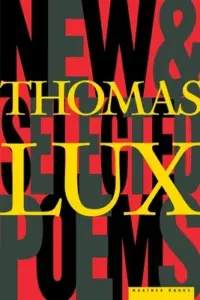
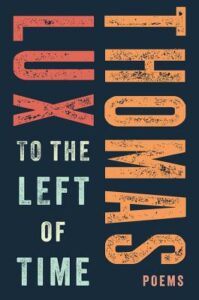
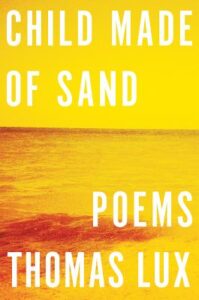
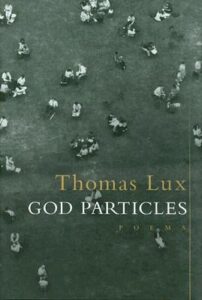


Reflections